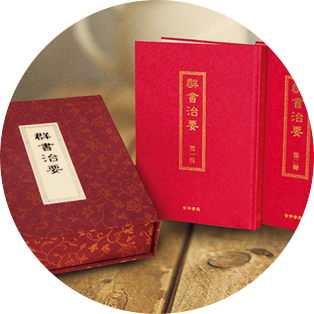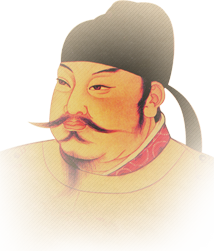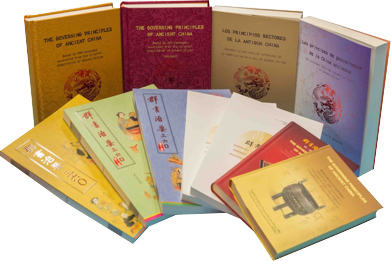


By the year 1840, China had been, for 2,061 years ‘the Middle Empire’ of her own East Asian world, and, in this role, she had given her world long-lasting unity and peace.
Arnold J. Toynbee, Change and Habit: The Challenge of Our Time,
Oxford University Press, London, 1966, p. 158.
History
At the beginning of the Zhenguan Era, Emperor Taizong (599-649) of the Tang dynasty decreed that The Governing Principles of Ancient China (otherwise known as Qunshu Zhiyao or The Compilation of Books and Writings on the Important Governing Principles) be compiled. Taizong ordered two advisors, the honourable Wei Zheng and Yu Shinan, to oversee teams to comb through all the historical records on imperial governing principles from the Six Classics, the Four Collections of History and the schools of philosophy, and to extract the most important lessons related to the cultivation of oneself, raising a family, good governance, and ways to bring about peace in the world. The result was a collection carefully excerpted from 14,000 books and 89,000 scrolls of ancient writing—500,000 words in all, and covering sixty-five book categories—dating from the era of the Five Legendary Emperors to the Jin dynasty.
Significance
The Governing Principles of Ancient China is a treasured compilation on governing principles that can bring about peace and order, which “when used in the present, allows us to examine and learn from our ancient history; when passed down to our descendants, will help them learn valuable lessons in life.” Those were the words of Advisor Wei Zheng in the preface of the completed compilation. Emperor Taizong was delighted with the broad yet concise compilation and would not let the books out of his sight. The Governing Principles of Ancient China takes us through thousands of years of Chinese political thinking, and offers us valuable leadership principles, which not only helped the great Tang Emperor Taizong achieve the success of the Zhenguan Era, but continues to inspire young and old on how to improve themselves, raise a family, manage an organisation, and on governance and administration, and interpersonal relationships.
360 passages from The Governing Principles of Ancient China (Qunshu Zhiyao)(selection) ⟩⟩
